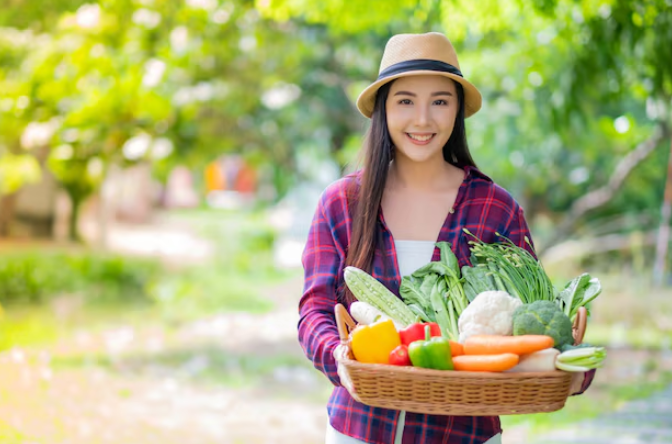In a world where life feels increasingly fast-paced and disconnected, community gardens offer a refreshing return to simplicity, sustainability, and togetherness. For women seeking meaningful wellness, access to fresh food, or stronger social ties, joining a community garden can be a transformative experience.

Growing More Than Just Food
Community gardens are shared spaces where individuals come together to cultivate fruits, vegetables, herbs, and flowers. But their value extends far beyond the harvest. They promote healthy lifestyles, reduce stress, and foster a deep sense of empowerment—especially for women who often take on the role of caretakers in their families and communities.
Gardening encourages you to slow down, connect with the earth, and be present. There’s a special kind of joy in nurturing a seed into something beautiful and nourishing. It’s an act of self-care rooted in the rhythms of nature.

Health and Wellness Benefits
Spending time in a garden, even just a few hours a week, has been linked to lower levels of anxiety and depression. The physical activity, fresh air, and exposure to sunlight all contribute to better physical and mental health.
And of course, growing your own food means more access to fresh, organic produce—perfect for women looking to support their family’s nutrition or explore new healthy recipes. Tomatoes, leafy greens, peppers, herbs—these homegrown ingredients often taste better and are richer in nutrients than store-bought alternatives.tine—not a luxury—you can unlock one of the most effective tools for a balanced, healthier life.

Building Bonds and Breaking Barriers
Community gardens are powerful tools for social connection. They bring together women of all ages, backgrounds, and experiences—encouraging collaboration, sharing of knowledge, and mutual support. Whether you’re a seasoned gardener or a curious beginner, these spaces create a sense of belonging.
In many cities, gardens also act as safe spaces where women lead workshops, host family-friendly events, or organize programs for youth. The garden becomes more than soil—it becomes a hub for empowerment and education.
Getting Started
- Find a local garden: Check with your city’s parks department, community centers, or local nonprofits.
- Start small: Even a few square feet of soil or a shared plot can produce meaningful results.
- Bring your kids or friends: Gardening is a wonderful bonding activity for families and social circles.
- Share the harvest: Exchange recipes, donate extras, or host a picnic with your fellow gardeners.
Disclaimer: The information provided in this article is for educational and informational purposes only and is not intended as a substitute for professional medical advice, diagnosis, or treatment.

















